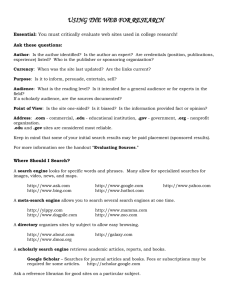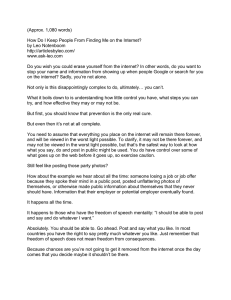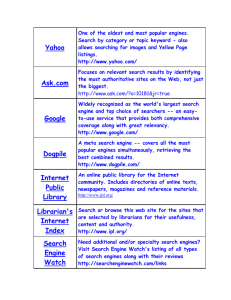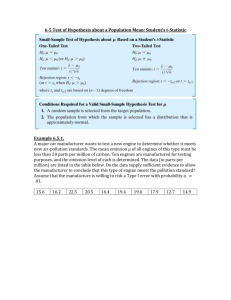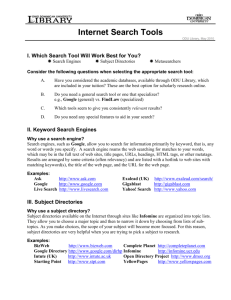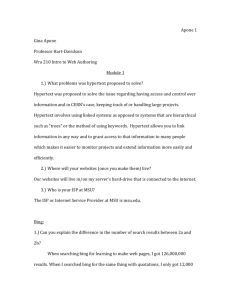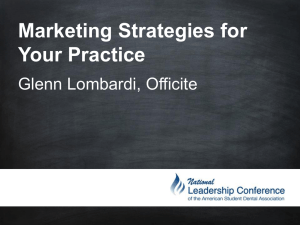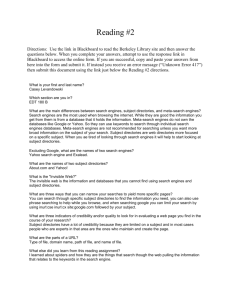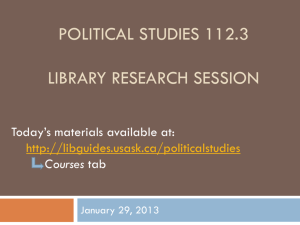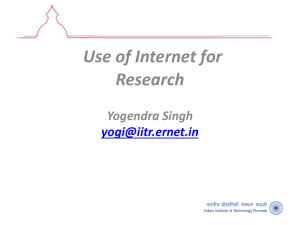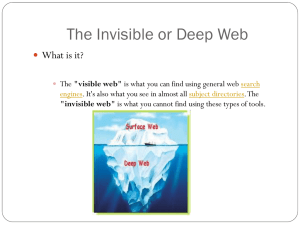Navigating the Net * Research Strategies
advertisement
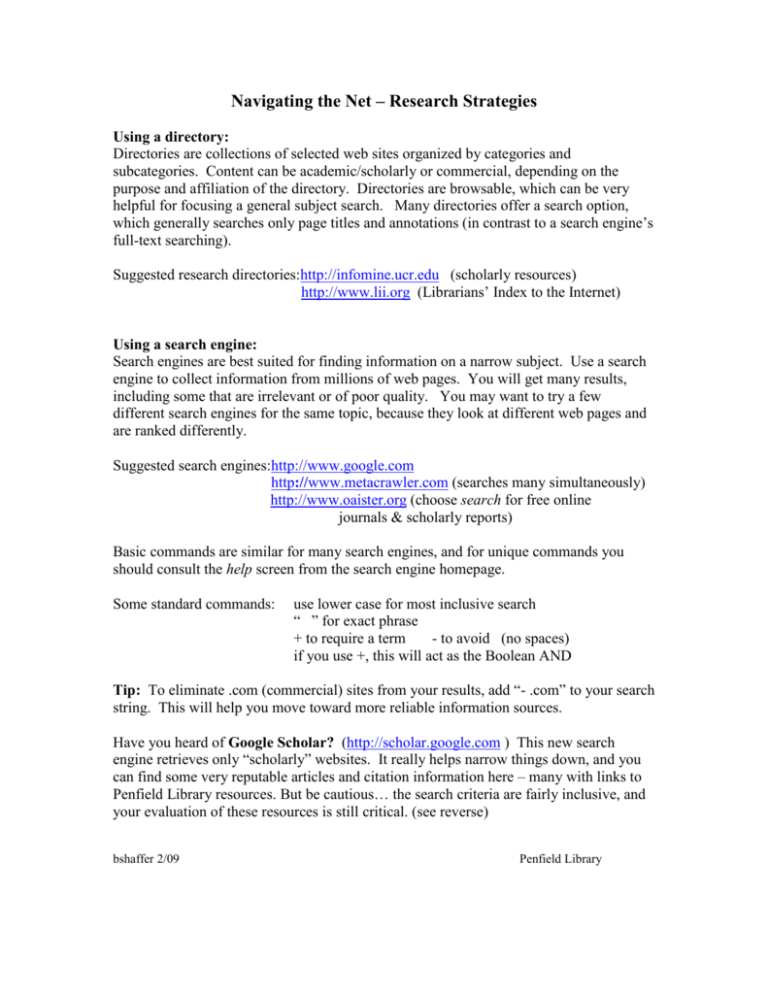
Navigating the Net – Research Strategies Using a directory: Directories are collections of selected web sites organized by categories and subcategories. Content can be academic/scholarly or commercial, depending on the purpose and affiliation of the directory. Directories are browsable, which can be very helpful for focusing a general subject search. Many directories offer a search option, which generally searches only page titles and annotations (in contrast to a search engine’s full-text searching). Suggested research directories:http://infomine.ucr.edu (scholarly resources) http://www.lii.org (Librarians’ Index to the Internet) Using a search engine: Search engines are best suited for finding information on a narrow subject. Use a search engine to collect information from millions of web pages. You will get many results, including some that are irrelevant or of poor quality. You may want to try a few different search engines for the same topic, because they look at different web pages and are ranked differently. Suggested search engines:http://www.google.com http://www.metacrawler.com (searches many simultaneously) http://www.oaister.org (choose search for free online journals & scholarly reports) Basic commands are similar for many search engines, and for unique commands you should consult the help screen from the search engine homepage. Some standard commands: use lower case for most inclusive search “ ” for exact phrase + to require a term - to avoid (no spaces) if you use +, this will act as the Boolean AND Tip: To eliminate .com (commercial) sites from your results, add “- .com” to your search string. This will help you move toward more reliable information sources. Have you heard of Google Scholar? (http://scholar.google.com ) This new search engine retrieves only “scholarly” websites. It really helps narrow things down, and you can find some very reputable articles and citation information here – many with links to Penfield Library resources. But be cautious… the search criteria are fairly inclusive, and your evaluation of these resources is still critical. (see reverse) bshaffer 2/09 Penfield Library
